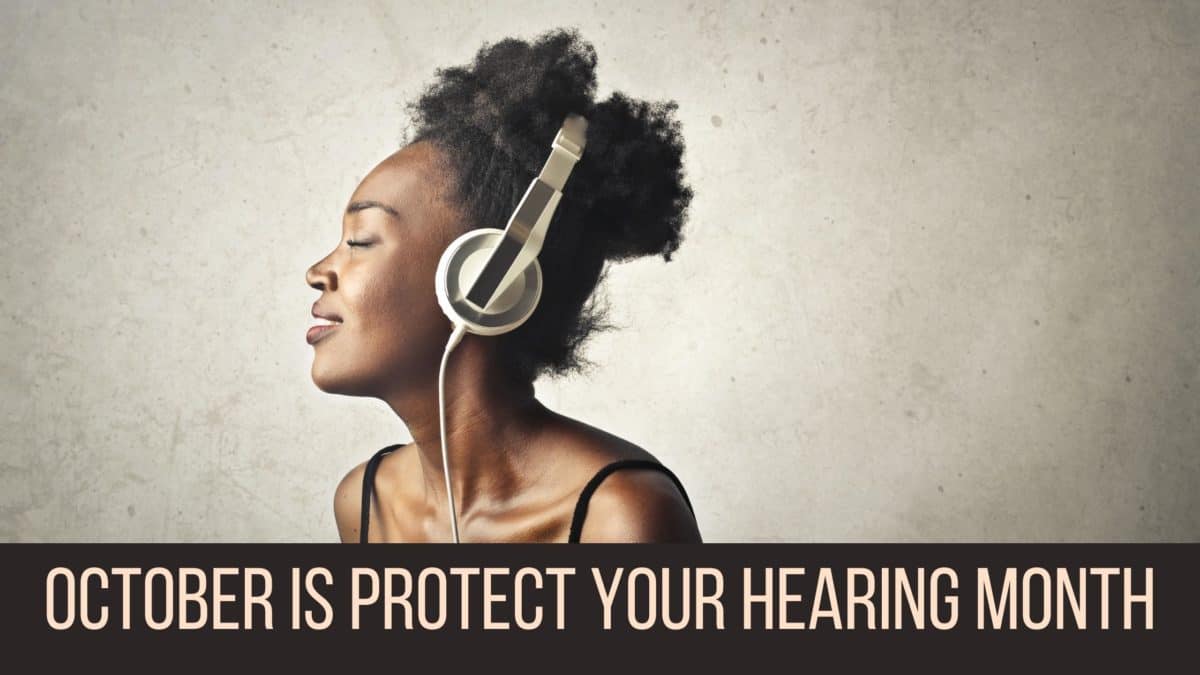- The Impact of Hearing Aids on Veterans’ Lives - February 15, 2024
- Hearing Health: A New Year’s Resolution for a Vibrant Life - January 16, 2024
- Unraveling Misconceptions About Hearing Loss - December 12, 2023
This month is all about protecting your hearing health! October marks Protect Your Hearing Month which aims to raise awareness about hearing loss, one of the most common medical conditions people live with today. Impacting over 48 million people, hearing loss has multifaceted effects that can take a toll on daily living. More people are at greater risk of developing hearing loss as a result of electronic devices which have become more integrated with how we live. Loud noise exposure from these devices can lead to noise-induced hearing loss. This month is a great reminder to prioritize your health by learning and practicing effective safety measures that protect your hearing!
Loud Noise & Hearing Loss
Hearing loss can be caused by a range of factors, one of the most common causes is exposure to loud noise. One time or regular absorption of loud noise can damage critical parts of the auditory system, the sensory system for hearing. This consists of the ears and the brain which works together to detect and process sound waves. Loud noise can disrupt this process by damaging the hair cells in the inner ear. These tiny hair cells are responsible for converting incoming soundwaves into electrical signals that then travel to the brain. Once the brain receives these signals, they are further processed and assigned meaning to which allows us to understand the speech and sound we hear.
Loud noise can cause these hair cells to lose sensitivity and contribute to them dying over time. Hair cells in the inner ear do not regenerate and there are no medical treatments to restore these cells. This means that when they are damaged, this prevents them from performing their critical function, leading to permanent hearing loss. Noise is measured in units known as decibels (dB) and sound above 85dB can harm hearing. This is the equivalent of everyday appliances like a hairdryer, power drill, and vacuum cleaner. Experts suggest that exposure to 85dB for 8 hours is the threshold for safe hearing and that exposure to sound that exceeds should be drastically reduced.
For every 3 decibel increase (after 85dB), the exposure time should be cut in half:
- 85dB: 8 hours
- 88dB: 4 hours
- 91dB: 2 hours
Monitoring and reducing exposure to loud noise is a useful way to reduce your risk of damaging your hearing.
Hearing Loss Symptoms & Impact
It is important to recognize the symptoms of hearing loss and intervene as soon as you experience any changes to your hearing health. Hearing loss reduces one’s capacity to detect and process sound, producing numerous symptoms including:
- Tinnitus: a buzzing, ringing, or clickings like noise in one or both ears
- Sounds are muffled, making it difficult to hear individual words
- Increasing the volume of electronic devices
- Asking others to speak louder, slower, or repeat themselves
- Difficulty hearing in environments with background noise
- Lip reading or pretending to hear throughout a conversation
- Needing to move to a quieter setting to hear better
- Being able to hear more clearly in one ear compared to the other
These symptoms can be mild or severe, significantly affecting communication. Untreated hearing loss not only strains communication but also impacts relationships, social life, job performance, and overall health. It can lead to social withdrawal, distance in relationships, and increases health risks like experiencing cognitive decline.
Tips to Protect Hearing
One of the most important ways to protect your hearing is to have your hearing regularly assessed. Hearing tests are painless, involving a process that identifies any impairment and the degree of hearing loss that could be present. This establishes your hearing needs and allows a hearing healthcare specialist to provide effective recommendations to meet those needs. In addition to having your hearing tested there are several ways you can protect your hearing including:
- Wear protective gear: this includes headphones, earplugs, earmuffs, etc. which offer a protective barrier for the ears, reducing the amount and impact of loud noise you absorb.
- Reduce exposure: absorbing less noise is another useful safety measure. You can do this by avoiding louder settings during peak hours, maintaining lower volume settings on electronic devices, avoiding high traffic areas, etc.
Commit to your hearing health this month by scheduling an appointment with us today!

